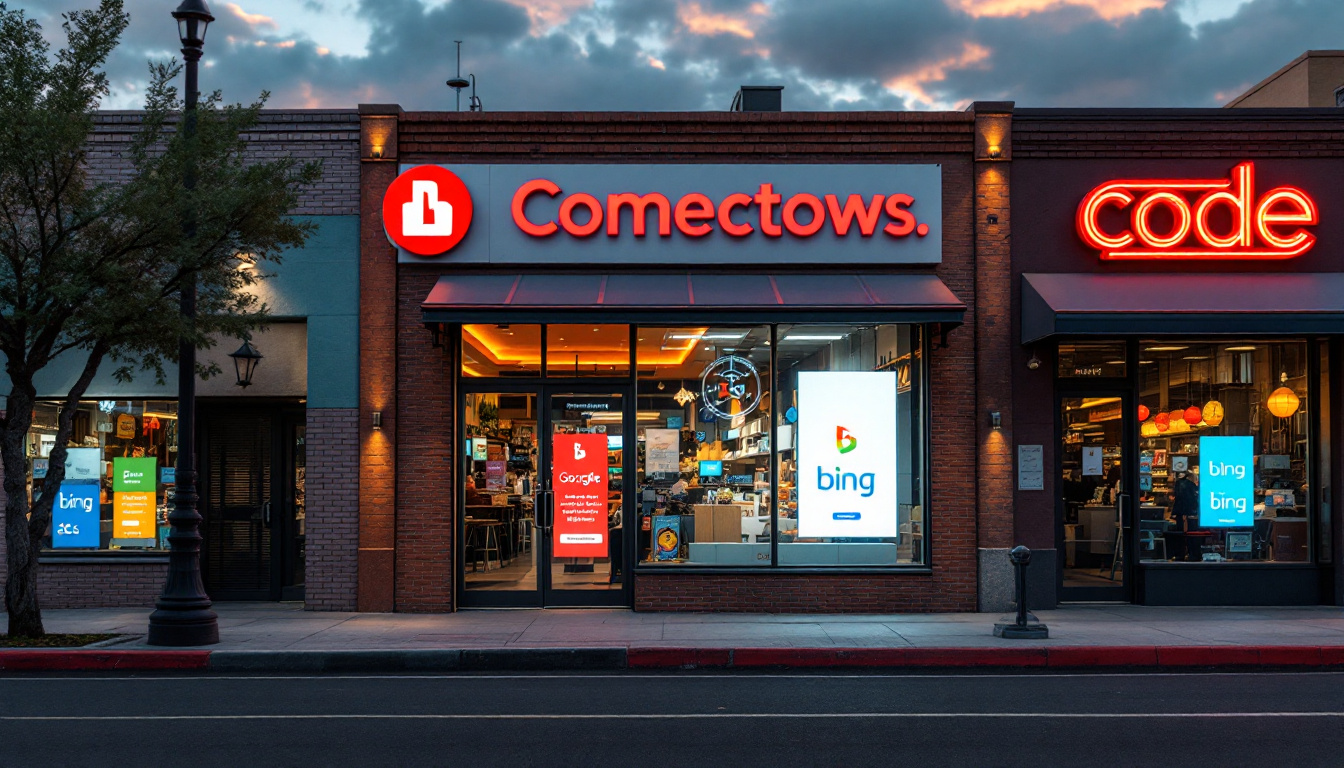How to Choose the Best PPC Keywords for Tucson, AZ

PPC advertising is a powerful tool for businesses in Tucson, AZ, enabling them to reach their target audience with precision and effectiveness. However, the success of a PPC campaign largely hinges on selecting the right keywords. In this article, we’ll explore how to choose the best PPC keywords specifically tailored for the Tucson market. We’ll cover various aspects, including identifying high-performing keywords, understanding match types, and optimizing for local search.
How to identify high-performing keywords
To kick off your keyword research, it’s essential to identify high-performing keywords relevant to your business. Start by brainstorming terms and phrases that potential customers might use when searching for your products or services. Understanding local interests and needs is key, especially in a vibrant city like Tucson. For instance, consider the unique cultural, recreational, and seasonal aspects that might influence search behavior. Tucson is known for its rich history, outdoor activities, and culinary scene, which can all provide valuable context for your keyword strategy.

Utilize keyword research tools such as Google Keyword Planner, SEMrush, or Ahrefs. These tools will provide you with insights into search volumes, competition levels, and keyword trends. Focus on long-tail keywords that are specific to Tucson, as they often indicate higher intent and less competition. Additionally, exploring related searches and questions can help uncover hidden opportunities that resonate with your target audience. By tapping into local forums or social media groups, you can gain further insights into the specific language and phrases that Tucson residents use when discussing their needs.
Another effective method is to analyze your competitors. Look at the keywords they are targeting in their PPC campaigns. Tools like SpyFu can reveal which keywords are driving traffic for your competitors, giving you a clear direction on what may work for your business. Furthermore, examining the content on their websites can provide inspiration for your own keyword strategy, helping you to identify gaps in their approach that you can exploit to gain a competitive edge.
The difference between broad match and exact match
Once you've identified potential keywords, it’s important to understand the different match types in PPC advertising. Broad match keywords will show your ad for a wide range of related searches, which can lead to more impressions but may result in irrelevant clicks. For example, if you use the broad match keyword "plumber," your ad might appear for searches like "emergency plumbing services” or “pipe repair." This can be beneficial for brand awareness, but it may also drain your budget on clicks that do not convert.
On the other hand, exact match keywords will trigger your ad only when someone searches for that specific term or a close variant. This gives you greater control over who sees your ads and can lead to a higher conversion rate, as it targets users who are more likely to engage. However, relying solely on exact match keywords may limit your reach. Therefore, it’s crucial to continually monitor performance and adjust your strategy based on the data you collect, ensuring that you are optimizing for both relevance and visibility.
Choosing the right match type is crucial for efficiency. A mix of both broad and exact match keywords can help you strike the perfect balance between reach and relevancy in your Tucson PPC campaigns. Additionally, consider using phrase match keywords, which can provide a middle ground by allowing your ads to show for searches that include the exact phrase along with additional words, thus broadening your potential audience without sacrificing too much specificity.
Tips for local keyword optimization in Tucson, AZ
Local keyword optimization is vital for PPC success in Tucson. Begin by incorporating location-specific keywords into your campaigns. Phrases like “best pizza in Tucson” or “Tucson HVAC services” not only improve your targeting but also cater to users seeking services in their local area. It’s also beneficial to stay updated on local events or trends that could influence search behavior. For instance, during the Tucson Gem and Mineral Show, businesses related to jewelry or crafts may see a spike in relevant searches.
Additionally, make use of Google My Business. Ensure that your business profile is fully optimized with accurate information and keywords relevant to your services. Encourage satisfied customers to leave reviews, as positive feedback can help increase visibility in local search results. Engaging with customers through posts or updates about special offers or events can also enhance your presence on the platform. This not only boosts your local SEO but also builds a community around your brand.
Moreover, consider using location-based ad extensions. These features, such as location or call extensions, can help enhance your ads by providing additional information about your business and making it easier for local customers to reach you. Incorporating local landmarks or popular neighborhoods in your ad copy can also resonate well with Tucson residents. By doing so, you create a sense of familiarity and trust, making it more likely that potential customers will choose your services over competitors.
How to conduct competitive keyword research
Conducting competitive keyword research is an effective strategy for uncovering valuable keywords that can enhance your PPC campaigns. Start by identifying your main competitors in Tucson. Analyze their ads and note the keywords they are bidding on. This initial step is crucial, as it sets the foundation for understanding the competitive landscape and allows you to gauge the effectiveness of various keywords in your niche.

Tools like SEMrush, Moz, and SimilarWeb can provide insights into your competitors’ keyword strategies. Investigate which keywords drive organic traffic to their sites, and consider incorporating similar phrases into your campaigns. Additionally, pay attention to the ad copy and landing pages your competitors are using, as this can give you ideas for your own messaging and help you differentiate your offerings. Don’t be afraid to venture into less competitive niches or long-tail keywords that your competitors may not have targeted. These keywords often have lower costs and can attract highly relevant traffic, leading to better conversion rates.
Once you have compiled a list of potential keywords, prioritize them based on search volume and competition level. Aim for a blend of high-volume and low-competition keywords. This balanced approach will maximize your ad visibility while reducing your overall cost-per-click. Moreover, consider seasonal trends and local events that may influence keyword performance. By aligning your keywords with timely topics or local happenings, you can capture the attention of potential customers when they are most likely to engage.
Using negative keywords to improve campaign efficiency
Negative keywords play an essential role in refining your PPC campaigns and improving their efficiency. By identifying keywords that are irrelevant to your product or service, you can prevent your ads from showing to users who are unlikely to convert. This not only saves you money but also ensures that your ads reach a more targeted audience, increasing the likelihood of generating leads.
For instance, if you are running a local Tucson landscaping service, you might want to add negative keywords like “free” or “job” to filter out irrelevant traffic from job seekers or those looking for unpaid landscaping advice. Additionally, consider using negative keywords related to DIY projects if your services are more focused on professional landscaping rather than home improvement. This specificity can help you attract clients who are willing to invest in quality services rather than those seeking budget-friendly options.
Utilizing negative keywords effectively can lead to a decrease in wasted spend, improve click-through rates, and enhance overall return on investment. Regularly review your search term reports to identify new opportunities for negative keywords as your campaign evolves. This ongoing analysis is vital, as it allows you to adapt to changing market conditions and consumer behavior, ensuring that your PPC strategy remains relevant and effective. By continuously refining your keyword strategy, you position your Tucson business for sustained growth and success in a competitive digital landscape.
By implementing these strategies, you can artfully navigate the complexities of PPC keyword selection, ensuring that your Tucson business gains the visibility it deserves and maximizes its advertising budget. Remember, the landscape of online advertising is ever-changing, and staying ahead of the curve requires constant vigilance and adaptation. Embrace the process of experimentation and analysis, and you will find yourself better equipped to make informed decisions that drive your business forward.

As a Google Ads expert, I bring proven expertise in optimizing advertising campaigns to maximize ROI.
I specialize in sharing advanced strategies and targeted tips to refine Google Ads campaign management.
Committed to staying ahead of the latest trends and algorithms, I ensure that my clients receive cutting-edge solutions.
My passion for digital marketing and my ability to interpret data for strategic insights enable me to offer high-level consulting that aims to exceed expectations.









